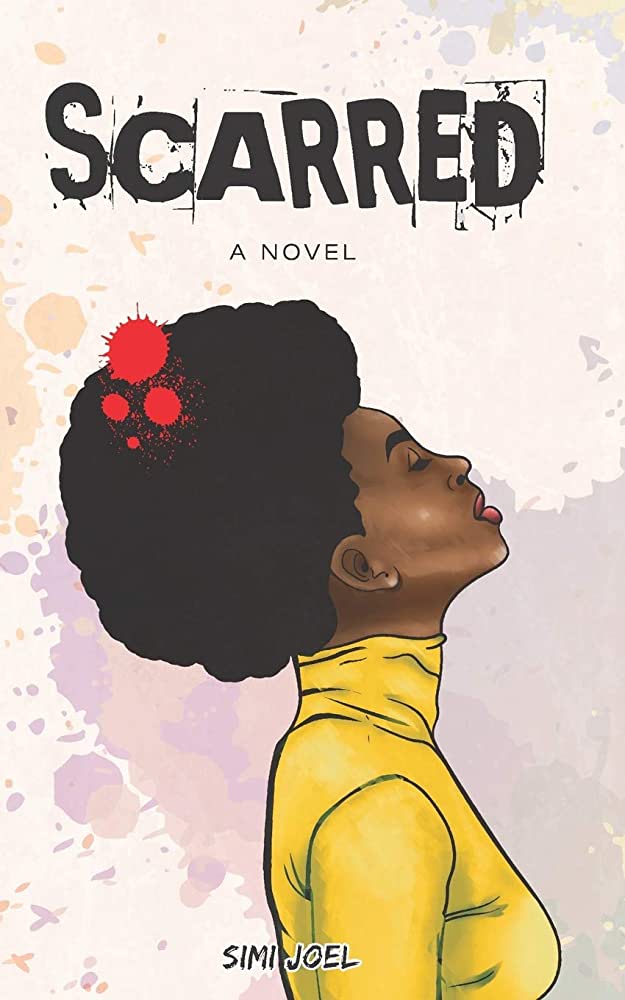
Simi Joel’s ‘Scarred’ is riveting for many reasons. First, it addresses a topical issue in our society. Second, it tells the story of sexual abuse, trauma, love, loss, heartbreak, hope, second chances and renewal. It also delves into how we deal with life challenges amid our human frailties.
Teni and Ranti are friends-cum-housemates who both love God, are successful and navigate each day as it comes. However, uncannily, they both experience significant life changes on the same day, threatening to pull apart the seemingly peaceful lives they have built. As the story progresses, long-buried memories and painful experiences unfold. We see that true to human nature, at the core of each person’s existence is a great fear they would rather not visit.
‘Scarred’ presents a real, but often overlooked, truth about sexual abuse that first-hand victims and survivors are not the only ones who suffer from the effects. The experiences also affect their loved ones. The author also highlights how sexual violence takes advantage of dysfunctional family structures. For instance, a home that is on the verge of breaking cannot deal with traumatic issues adequately. We see the Oke family respond poorly to the news of their child’s molestation until there is external intervention. Simi Joel does justice to the subject matter by portraying the problem and the ordeals of its victims and survivors alike.
The most delightful message ‘Scarred’ leaves with its readers is hope and the possibility of healing. Teni’s hard journey to healing is a testament that hopes remains for anyone on a similar difficult path. ‘‘Wounds heal, and her scars weren’t for shame, but the proof of a process, a sealing of life’s messes and a reminder of her healing.’’
The Christian faith and its central essence are also predominant in the novel. There are many instances of how faith brings a soothing effect to the lives of its adherents. For example, Teni and Ranti find solace amid their problems by engaging in vulnerable worship moments. The story also highlights the tranquillity offered through reassuring scriptures in the form of a monologue. Then, there’s the comforting presence and partnership of Fisayo, Teni’s fiance. His dedication to loving her, despite her pain and fears, is rare and real. Indeed, it is impossible to separate the substance of faith from the strength that makes healing possible for the characters in Joel’s ‘Scarred’.
The book presents a dual perspective on sexual assault. Upon discovery or disclosure, it is not uncommon to find many parents deny and exhibit outbursts of anger, or even dismiss the whole ordeal. On the spur of the moment, Teni also confides in the most unlikely person. The reaction is an unexpected deviation from the norm in such situations. ‘Scarred’ highlights different dimensions and reactions to trauma, and the lengths victims may go to shield themselves from the reality of pain. It also touches on the importance of therapy in addressing the post-trauma associated with sexual violence, so that survivors can transition into the fullness of life afterwards.
Office politics is also at play in the story, particularly from a gender perspective. Ranti displays the doggedness required for self-preservation in today’s corporate environment. It is refreshing to see a woman press for her due recognition when opposing forces attempt to clamp down on her and take the credit for it.
‘Scarred’ attempts to answer this critical question: Does the passage of time truly dull the pain of trauma or merely numb the triggers? The main characters in ‘Scarred’ walk their journey and show us how wholesome love, support and family make healing easier. This is one of the best things that Simi Joel does with ‘Scarred’; showing that scars do not signal the end of life but living beyond pain can still be beautiful and worthwhile.
Credit: BN